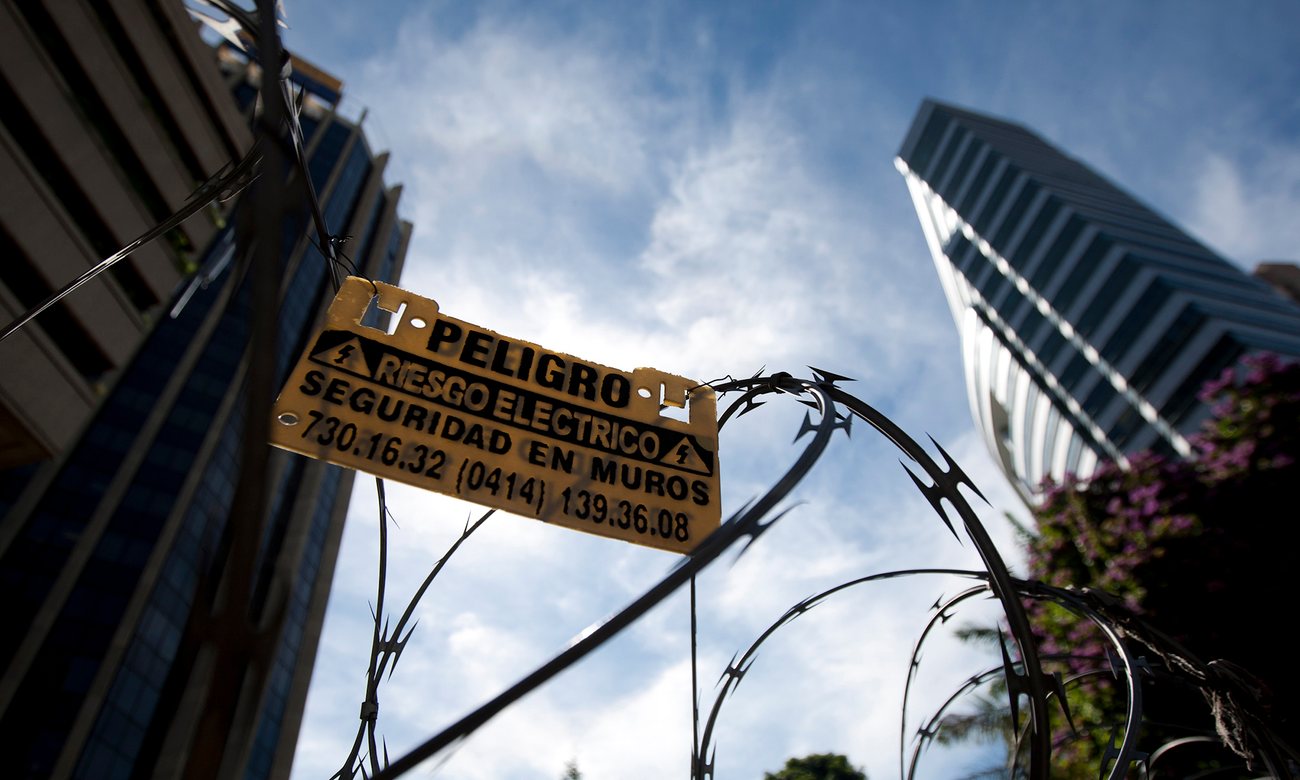The architecture of fear: how Caracas has adapted to constant threat of violence
March 1, 2017

Tall walls, barred windows and armed security are increasingly common in the Venezuelan capital, where more and more Caraqueños avoid going out at night – travelling in convoy if they must leave home after dark
The last thing Corina expected on the night she and her two children were carjacked was for her kidnappers to scold her.
“It’s extremely irresponsible of you to be driving at this time of night, ma’am,” Corina recalled her captor saying. “You shouldn’t be going around in this tiny car at night.” He then kicked her out of the car, took her cash and left her and her children on the streets of Caracas in the dead of night.
The story is just one of many on a list that has gone viral in Caracas about criminals advising their victims on how to avoid falling prey to their traps.
Although the article, published by El Estimulo newspaper, has a humorous tone, it highlights a fact of life in the world’s most dangerous city. A self-imposed curfew rules over the Venezuelan capital where, according to Organised Crime Observatory, 3,102 murders took place in 2016 alone.
Only the brave walk the streets of Caracas after sunset, when the dizzying frenzy of the daytime city gives way to an eerie stillness as residents seek refuge indoors: the wealthy hide inside their gated communities and the poor lock the doors to their makeshift zinc-roofed homes. A handful of speeding cars tear through half-empty roads and solitary figures walk briskly down dark pavements.
It was not always this way. Dubbed the Paris of South America, Caracas benefited from a strong oil sector and an influx of European immigrants in the 1950s. The city boomed for decades, feeding on foreign investment and building modern infrastructure. Mass housing projects began to materialise as residents from the countryside arrived in search of a better life.
But in the 1980s, oil prices collapsed and decades of government mismanagement led to soaring inflation and an economic crisis that has only worsened since the death of Hugo Chávez four years ago.
Shortages in the capital have caused a desperate lack of food and access to basic medical supplies, prompting a humanitarian crisis and testing the already delicate social fabric: according to polling firm Datalanalisis, 95.1% of the population is unhappy with the state of the country.


